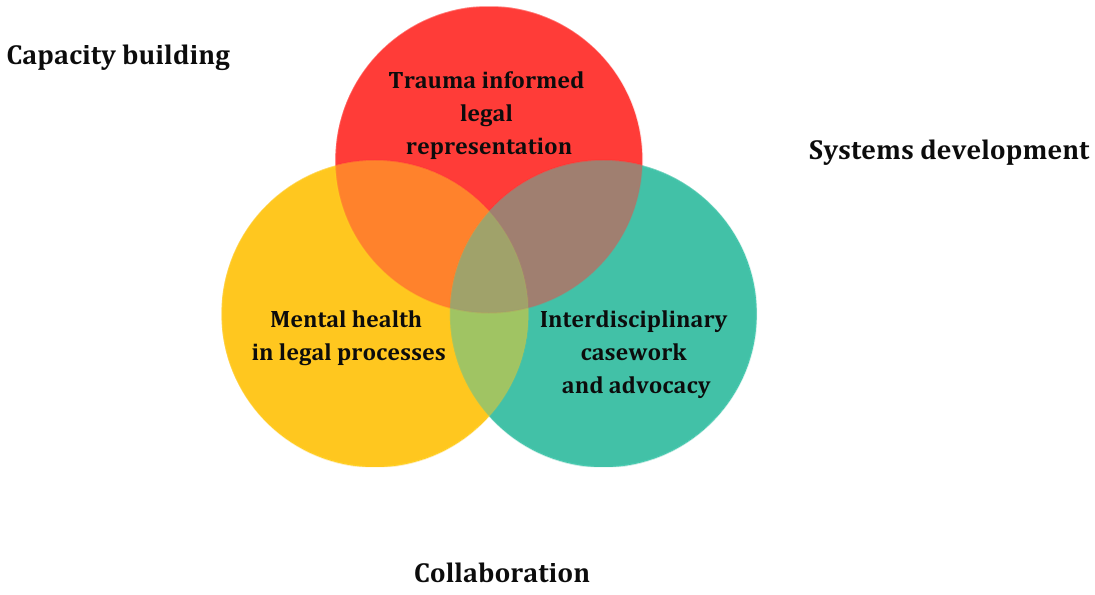
AMERA International has developed and supports use of a model of therapeutic legal assistance for representation of refugees and others forcibly displaced. This model reflects what AMERA considers to be three core pillars to effective legal assistance, informed by and supportive of mental health and wellbeing needs:
- Practitioners have knowledge and understanding of the impact of mental health on refugees’ access to legal processes, and how this shapes effective legal representation
- Legal practitioners understand principles and approaches of trauma-informed/psychologically-informed lawyering and how to integrate it into their practice.
- Legal representation is provided through lawyers trained in trauma-informed practices, in cooperation with caseworkers, interpreters and MHPSS practitioners
- Legal practitioners are aware of the symptomatology of mental health conditions, alongside other psychological effects, and the effects on legal processes
- Systems are established for identifying and responding to clients’ mental health needs as part of the legal process
- Legal practitioners can acknowledge and respond to the impacts of vicarious trauma
- Psychosocial & protection case management principles are integrated with legal casework, complementing trauma informed approaches.
- Wherever possible, legal practitioners coordinate with services to ensure that mental health, psychosocial and protection needs are addressed, and that their representation is informed by the wider needs of the client
- Legal practitioners and other professionals involved with the client coordinate in advocacy to address individual needs that impact the client’s ability to participate effectively in their legal process
- Clients’ well-being is positively impacted through the involvement of advocates
- Legal practitioners understand how mental health interlocks with credibility assessments, and have related resources to strengthen representation
- Legal practitioners understand the value and approach to using medico-legal reports, as well as wider evidence related to mental health, to facilitate quality legal representation and fair legal processes for refugees with mental health needs
- Legal practitioners have knowledge of guidelines, standards, best practices, and references for incorporating mental health in their representation
- Suitable systems are in place to identify and refer people for mental health assessments, reports, and treatment as necessary
- Mental health practitioners are trained in legal processes facing refugees, informing assessments and reports that provide an outline of clients’ symptoms, diagnosis, clinical implications, and recommendations
TLAM Professional Development & Knowledge Sharing Program
AMERA supports organisations to implement therapeutic legal assistance approaches, directly or through cooperation with other service providers. AMERA can support in adaptation of the model to suit the context, capacity and available resources of legal practitioners. Resources and training are available for legal practitioners on some or all aspects of the model, as relevant to their work and needs.
For more information or to discuss training and support needs contact tlam@amerainternational.org.
Listen to our Director explain the rationale behind the Therapeutic Legal Assistance Model, and our training for lawyers in Greece:

